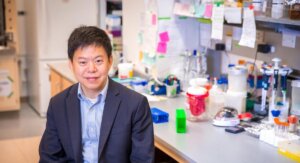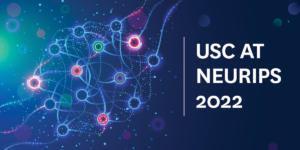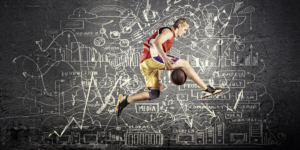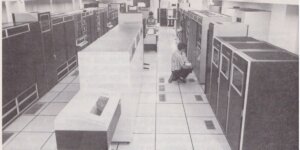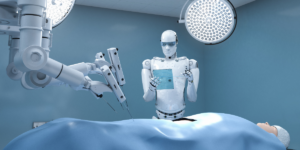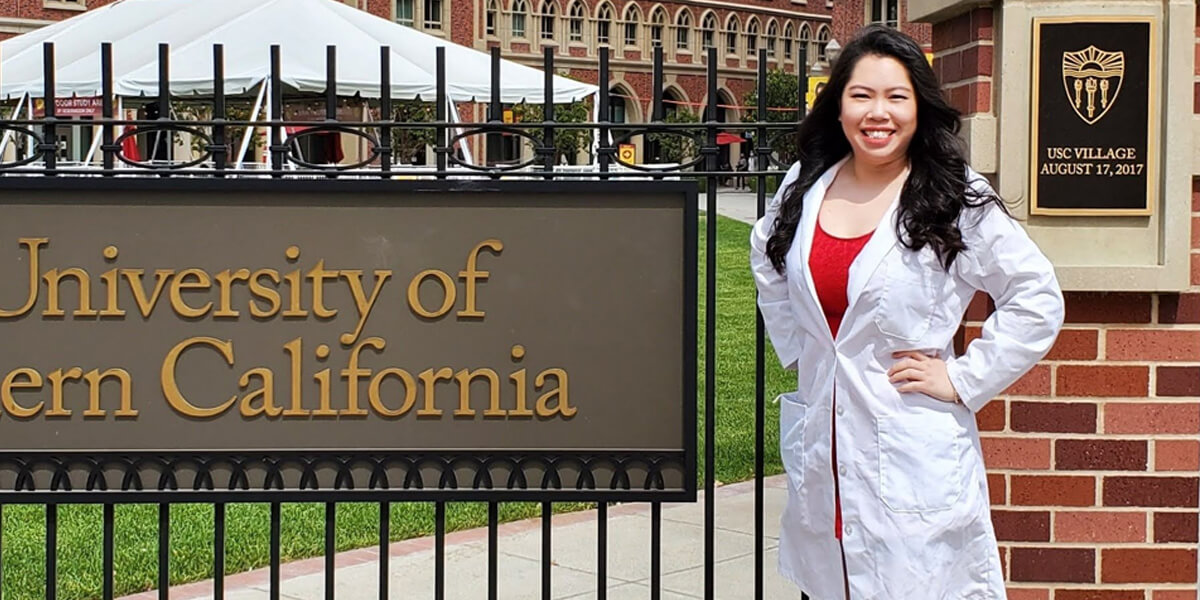
Lisa Meng is using AI and machine learning to try to improve efficiency and accuracy in diagnosing patients. Photo/Vivian Meng.
Lisa Meng was on track to become a doctor. But something didn’t feel quite right.
After earning bachelor’s degrees in both neurobiology and chemistry at University of California, Irvine, she was pre-med, had taken the MCAT and was even applying to medical schools. “I just felt like I was out of place,” said Meng.
Luckily, while completing her undergraduate studies, she also worked in a research lab developing a robotic arm to help rehabilitate stroke patients. It led to her a-ha moment, which was her first step on the ladder to a career in data science.
“I’ve always loved tinkering with numbers and gleaning information and results from data,” said Meng, a first-generation student born and raised in the San Gabriel Valley. “While working in the lab, I realized I could branch out into the engineering side of healthcare and still help people, because that’s the main reason I wanted to become a doctor.”
Prescribing a better course of action
Fast forward two years and Meng is graduating with a Master of Science in Healthcare Data Science from the USC Viterbi School of Engineering. During the program, students learn how to apply skills such as data management, data visualization, AI and machine learning to real-world challenges in the healthcare industry.
“Working in hospitals, I have seen struggles throughout the healthcare system,” said Meng, who also completed a medical mission to Honduras in 2012 shadowing a gynecologist, orthodontists and internal physicians.
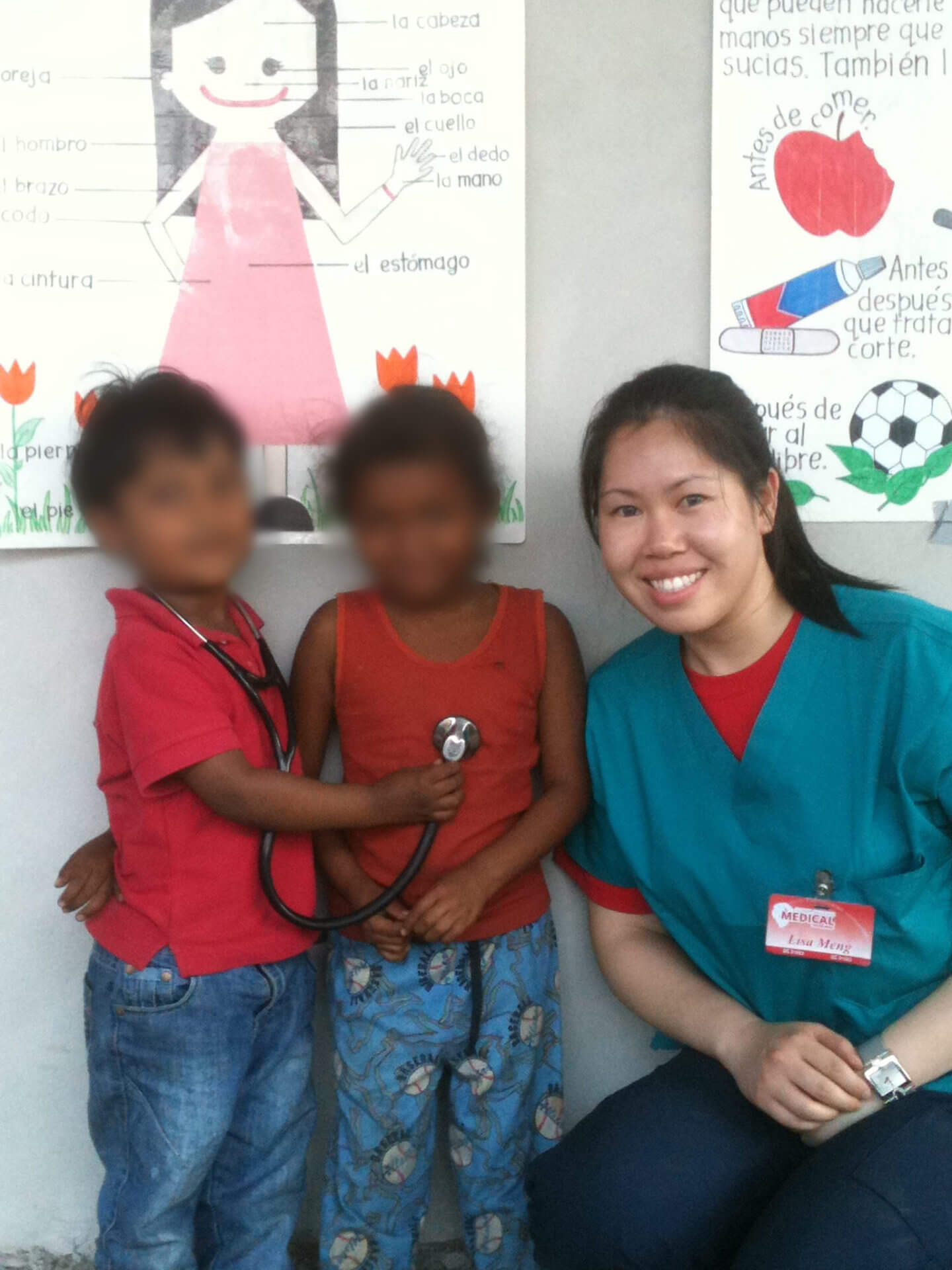
Meng completed a medical mission to Honduras in 2012 shadowing a gynecologist, orthodontists and internal physicians.
“I think the next big step forward for healthcare is to use AI and machine learning to try to improve efficiency and accuracy in diagnosing patients. If we can collect enough data, we can help doctors prescribe a better course of action. Make this technology accessible to people all over the world, including the poorest regions, and I truly believe it could be a gamechanger.”
More accurate diagnosis
By finding patterns in huge amounts of data, data science can help doctors detect many health issues earlier. This can allow for more effective treatment of diseases including cancer, which kills more than 600,000 people in the U.S. every year. During her internships at USC, Meng witnessed first-hand the impact of data science on people’s lives in the real world.
During her first year, she worked in Dan Ruderman’s lab at the Keck School of Medicine of USC, developing a machine learning algorithm to help diagnose breast cancer tissues.
“Breast cancer is difficult to diagnose—mammography has a false negative rate of 8-10% and it is difficult to determine the severity or type of cancer. By analyzing these biopsy tissues, we’re able to use machine learning to assist the radiologist in determining whether cancer is present or not,” said Meng, who was in charge of setting up the slides and cleaning the data so it was ready for analysis—a vital step in the process.
Since last summer, she has worked remotely in the Image Processing and Informatics Lab of Brent Liu — a USC Viterbi associate professor and the healthcare data science program’s co-director — working on a radiation therapy decision support algorithm for head and neck cancer patients.
“We’re trying to gather enough scans and patient data to build a knowledge base of past treatments and software that can recommend radiation therapy parameters and procedures,” said Meng. “With enough data history, we can exactly match a patient to similar patients in the database, see the efficacy of certain treatments, and suggest therapy options.”
The team is currently using a similarity-matching algorithm, which aims to match a new patient’s information to previous patients in the database to help clinicians determine which procedure may have the best outcome. This, said Meng, bridges the gap between the clinician’s personal experience, and the algorithm, which uses quantitative data to support treatment plan decisions.
“Currently, the algorithm focuses on the left and right parotid glands, or salivary glands, as the organs we want to minimize radiation to,” said Meng. “The next step is to implement machine learning techniques to reduce damage to other multiple healthy organs surrounding the tumor, such as the eyes, ears, and thyroid glands. The hope of this algorithm is to expand its use for cancers in other areas of the body as well.”
“That’s what’s so inspiring to me: I am playing with data in the present tense, but it has an effect in the future tense.” Lisa Meng.
Follow your intuition
The Master of Science in Healthcare Data Science curriculum is designed to be accessible to students with any background, including students from other engineering fields, hard sciences like biology or chemistry and healthcare.
As a USC Viterbi graduate ambassador, Meng is often asked: how easy is it to transition from a non-technical undergraduate degree to the data science master’s program? “I tell them off the bat – it was a challenge, but a necessary one,” said Meng.
“If you put in the work, I believe you can do it. For me, it was a struggle deciding between medicine and data science, because it’s such a new field, but I followed my intuition and I’m really glad I did.”
After graduation, Meng already has a job lined up with Northrop Grumman working in the company’s Mission Systems sector, with a goal to eventually apply her skills in the health technology area. Ultimately, she wants to continue to apply her data science skills to saving lives.
“With data science, you can draw meaning and sway important decisions based on high-accuracy predictions,” said Meng. “That’s what’s so inspiring to me: I am playing with data in the present tense, but it has an effect in the future tense.”
Published on May 13th, 2021
Last updated on May 18th, 2021




